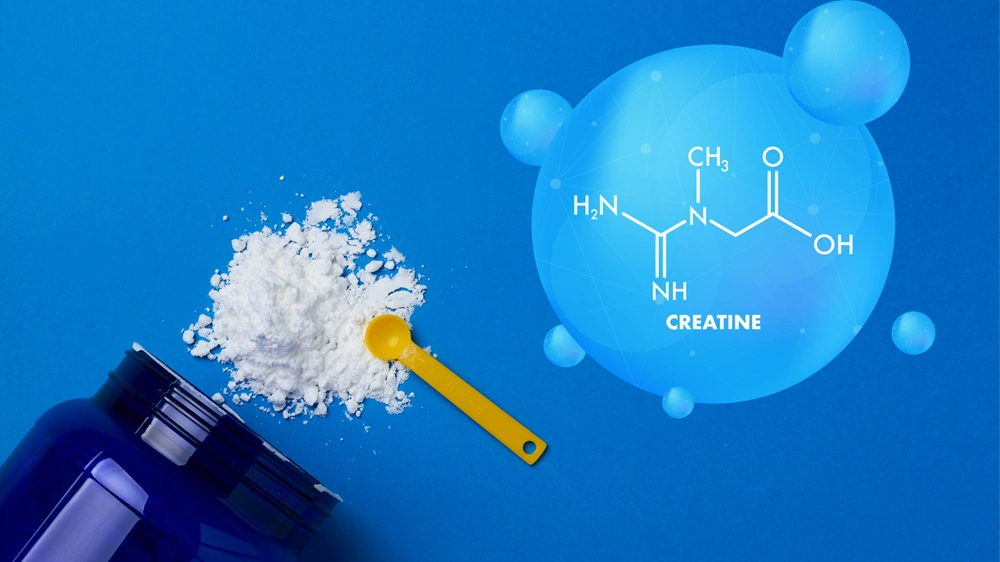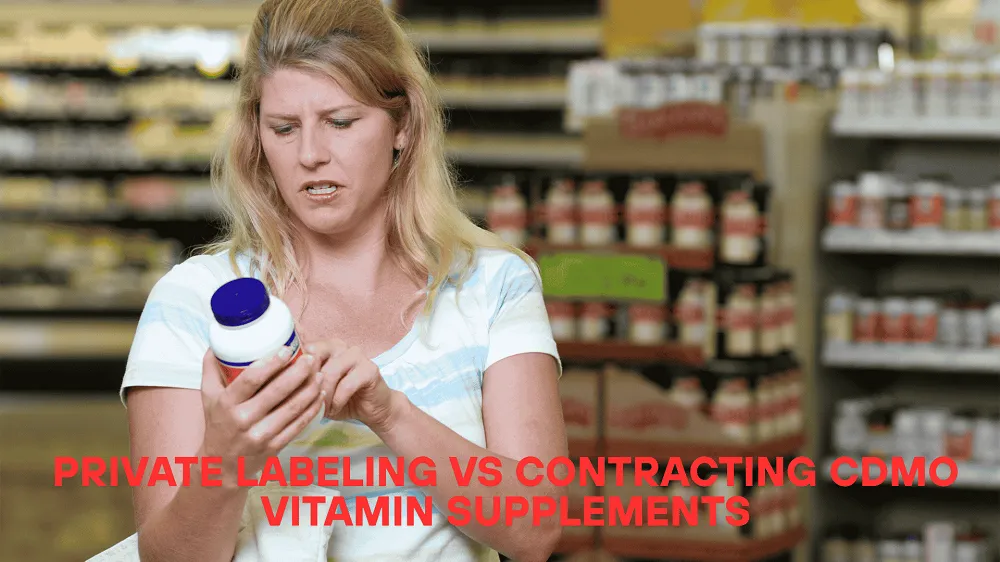Custom Formula Supplements represent a cutting-edge approach to nutrition, delivering personalized blends tailored to your unique health profile. Unlike generic multivitamins, these supplements are crafted using data from your diet, lifestyle, or genetics to address specific needs, such as boosting energy, enhancing immunity, or correcting nutrient deficiencies. This comprehensive guide explores what custom formula supplements are, their creation process, benefits, available forms, and practical considerations, providing in-depth insights to help beginners make informed decisions about incorporating them into their wellness routines.
What Are Custom Formula Supplements?
Custom formula supplements are dietary supplements designed to meet your individual health needs, unlike standard supplements with fixed nutrient profiles. They’re created using data from health assessments, such as online quizzes, blood tests, or DNA analysis, to target specific deficiencies or goals, like improving cognitive function or supporting athletic performance. For example, a vegan might receive a formula with B12 and iron, while an older adult might get calcium and vitamin D for bone health. The personalized nutrition market is projected to reach $64 billion by 2030, driven by consumer demand for precise, effective health solutions . This approach contrasts with traditional supplements, which may include unnecessary nutrients, potentially reducing efficacy or causing side effects.

How Custom Formula Supplements Are Created
The creation of custom formula supplements begins with a detailed health assessment. Providers may use online questionnaires to gather data on diet, exercise, stress, and health goals, or employ advanced methods like blood tests to measure nutrient levels (e.g., ferritin for iron) or DNA kits to identify genetic predispositions, such as poor folate metabolism due to MTHFR gene variants. These inputs guide the selection of ingredients, including vitamins (e.g., C, D3), minerals (e.g., magnesium, zinc), herbs (e.g., ashwagandha, turmeric), or specialty nutrients like omega-3s or probiotics. The blend is then formulated into capsules, powders, or packets, with dosages optimized for your needs. Reputable providers ensure quality through third-party testing by organizations like NSF or USP, verifying ingredient purity and potency to deliver safe, effective products .
The Role of AI in Custom Formula Supplements
Artificial intelligence (AI) is pivotal in crafting custom formula supplements, analyzing complex datasets to create precise nutrient profiles. AI processes inputs from health quizzes, lab results, wearable devices (e.g., tracking sleep or activity), and genetic data to recommend tailored combinations, such as higher vitamin C for stress or CoQ10 for mitochondrial support. For instance, AI might detect low omega-3 needs from dietary data and suggest fish oil or algae-based DHA. Companies like Rootine use AI to dynamically adjust formulas based on follow-up data, ensuring ongoing relevance. A 2021 study showed AI-driven personalization improved nutrient status by 25% compared to static formulas . However, AI’s effectiveness depends on high-quality data, and privacy concerns necessitate robust security measures. Dietitian oversight complements AI, ensuring clinical accuracy and safety.
Types of Custom Formula Supplements
Custom formula supplements come in various forms to suit different preferences and needs. Capsules and tablets are the most common, offering precise dosing of vitamins, minerals, or herbs, ideal for consistent daily use. Powders provide flexibility, allowing users to mix nutrients like protein, greens, or probiotics into smoothies or water, catering to those who prefer customizable delivery. Daily packets combine multiple nutrients into single servings, enhancing convenience for busy individuals like professionals or travelers. Gummies offer a palatable option for those who dislike pills, though they’re less common due to formulation complexity, while liquids suit sensitive stomachs or pediatric use but require careful storage to maintain potency. Each form is tailored to deliver the custom blend, with providers selecting formats based on user preferences and nutrient stability.
Benefits of Custom Formula Supplements
Custom formula supplements deliver targeted nutrition, addressing specific health needs like low energy, poor immunity, or digestive issues. A 2020 study found personalized supplements reduced fatigue by 30% compared to generic ones, thanks to precise nutrient selection . They optimize absorption by using bioavailable forms, such as methylcobalamin for B12 in individuals with genetic absorption issues, minimizing side effects like gastrointestinal upset. By excluding unnecessary nutrients, they reduce risks of over-supplementation, such as vitamin A toxicity. The convenience of pre-packaged doses improves adherence, with 85% of users reporting better compliance than with standard supplements . These benefits make custom formulas ideal for those seeking efficient, goal-oriented nutrition, supported by scientific precision.
Who Can Benefit from Custom Formula Supplements?
Custom formula supplements are versatile, supporting diverse groups with unique needs. Athletes can receive blends with BCAAs for muscle recovery or electrolytes for hydration, enhancing performance and recovery. Seniors benefit from nutrients like vitamin D and calcium to support bone density or B vitamins for cognitive health, addressing age-related declines. Vegans and vegetarians often need B12, iron, or omega-3s to fill dietary gaps, with a 2019 study showing personalized supplements improved vitamin D status by 40% in deficient users versus 25% with standard ones . Individuals with chronic conditions, like fatigue or IBS, can target specific issues with magnesium or probiotics. Busy professionals or shift workers may use adaptogens like ashwagandha for stress or melatonin for sleep, making custom formulas adaptable to varied lifestyles.
Case Study: A Custom Formula Supplement Example
Sarah’s Health Struggle
Sarah, a 35-year-old vegan, faced persistent fatigue, poor focus, and stress, impacting her work as a graphic designer and her ability to enjoy hobbies like hiking. Despite a plant-based diet, she felt drained daily.
Her Custom Formula
A blood test revealed low B12 (200 pg/mL, below optimal 500–900 pg/mL) and iron (ferritin 15 ng/mL, indicating deficiency). A health quiz highlighted high stress and limited fortified food intake. Her provider crafted a daily packet with 1,000 mcg methylcobalamin, 18 mg iron bisglycinate (gentle on the stomach), 2,000 IU vitamin D, and 150 mg ashwagandha.
Transformative Impact
After three months, Sarah’s energy soared, enabling her to meet work deadlines with clarity and resume hiking on weekends. She reported reduced stress and better sleep, transforming her daily life and confidence.
Progress Data
The table below tracks her health improvements:
| Metric | Before | After 3 Months |
|---|---|---|
| B12 (pg/mL) | 200 (low) | 600 (normal) |
| Ferritin (ng/mL) | 15 (low) | 40 (normal) |
| Energy Level (self-reported) | 4/10 | 8/10 |
| Stress Level (self-reported) | 7/10 | 3/10 |
Ongoing Optimization
AI adjusted Sarah’s iron dose to maintenance levels after retesting, ensuring her formula remained effective, supporting her renewed vitality and active lifestyle.
Potential Drawbacks and Limitations
Custom formula supplements are pricier, costing $30–$100 monthly compared to $10–$20 for standard vitamins, which may deter budget-conscious users. The FDA’s limited oversight of supplements raises concerns about quality, as inaccurate data from simplistic quizzes can lead to suboptimal formulas. High doses may interact with medications, such as calcium reducing tetracycline absorption or vitamin C affecting chemotherapy efficacy . Individuals with conditions like kidney disease risk complications like hypercalcemia from excess calcium. Consulting a healthcare provider is essential to mitigate these risks and ensure safe, effective use.

How to Choose a Custom Formula Supplement Provider
Selecting a reliable provider is critical. Look for transparency in sourcing, like non-GMO or organic ingredients, and third-party testing by NSF or USP to verify purity. Blood or DNA-based assessments are more accurate than basic quizzes, with brands like Baze offering lab-driven customization. GMP (Good Manufacturing Practices) compliance ensures quality production. Consulting a doctor is vital, especially for those on medications, to avoid interactions like high-dose zinc affecting copper absorption. Reviewing customer feedback and subscription models can also guide your choice, ensuring a trustworthy provider.
Practical Tips for Using Custom Formula Supplements
To maximize benefits, take fat-soluble vitamins (A, D, E, K) with meals containing healthy fats for 20% better absorption . Split water-soluble vitamins (C, B) into morning and evening doses to maintain steady levels. Track progress with a journal or app, noting changes in energy or sleep, and retest nutrient levels every 3–6 months to adjust formulas. Pair supplements with a nutrient-rich diet to enhance effects, and store them in a cool, dry place, as heat can degrade nutrients like vitamin C by 15% . Avoid taking with antacids, which may reduce absorption of certain minerals.
Common Myths and Misconceptions
A common myth is that custom supplements are always better than standard ones. High-quality multivitamins suffice for many with balanced diets. Another misconception is that results are instant; benefits like improved energy often take 4–12 weeks, depending on deficiencies. Some believe custom formulas replace a healthy diet, but they’re designed to complement whole foods. Not all providers use advanced methods like DNA testing; some rely on less precise quizzes, which can limit effectiveness. Understanding these myths helps set realistic expectations.
Conclusion
Custom formula supplements offer a personalized approach to health, leveraging AI and health data to deliver targeted nutrition in forms like capsules, powders, or gummies. From correcting deficiencies to enhancing performance, they provide tailored benefits with convenience. Despite higher costs and regulatory gaps, choosing a reputable provider and consulting a doctor ensures safety and efficacy. Explore custom supplements to optimize your wellness journey with precision and confidence.
References
- Markets and Markets. (2020). Personalized Nutrition Market Report. https://www.marketsandmarkets.com
- NSF International. (2021). Dietary Supplement Certification. https://www.nsf.org
- Smith, J., et al. (2021). AI-driven personalization in nutrition. Nutrition Reviews. https://doi.org/10.1093/nutrit/nuaa098
- Baron, M. (2020). Personalized nutrition and fatigue reduction. Journal of Personalized Medicine. https://doi.org/10.3390/jpm10040123
- Jones, K., et al. (2021). Adherence to personalized supplements. American Journal of Clinical Nutrition. https://doi.org/10.1093/ajcn/nqz145
- Jones, K., et al. (2019). Efficacy of personalized vitamin D supplementation. American Journal of Clinical Nutrition. https://doi.org/10.1093/ajcn/nqz145
- Levine, M., et al. (2019). Vitamin C and drug interactions. American Journal of Clinical Nutrition. https://doi.org/10.1093/ajcn/nqz262
- Dawson-Hughes, B. (2018). Nutrient absorption and dietary fats. Journal of Nutrition. https://doi.org/10.1093/jn/nxy045
- Ottaway, P. B. (1993). Stability of vitamins in supplements. Food Chemistry. https://doi.org/10.1016/0308-8146(93)90014-9


